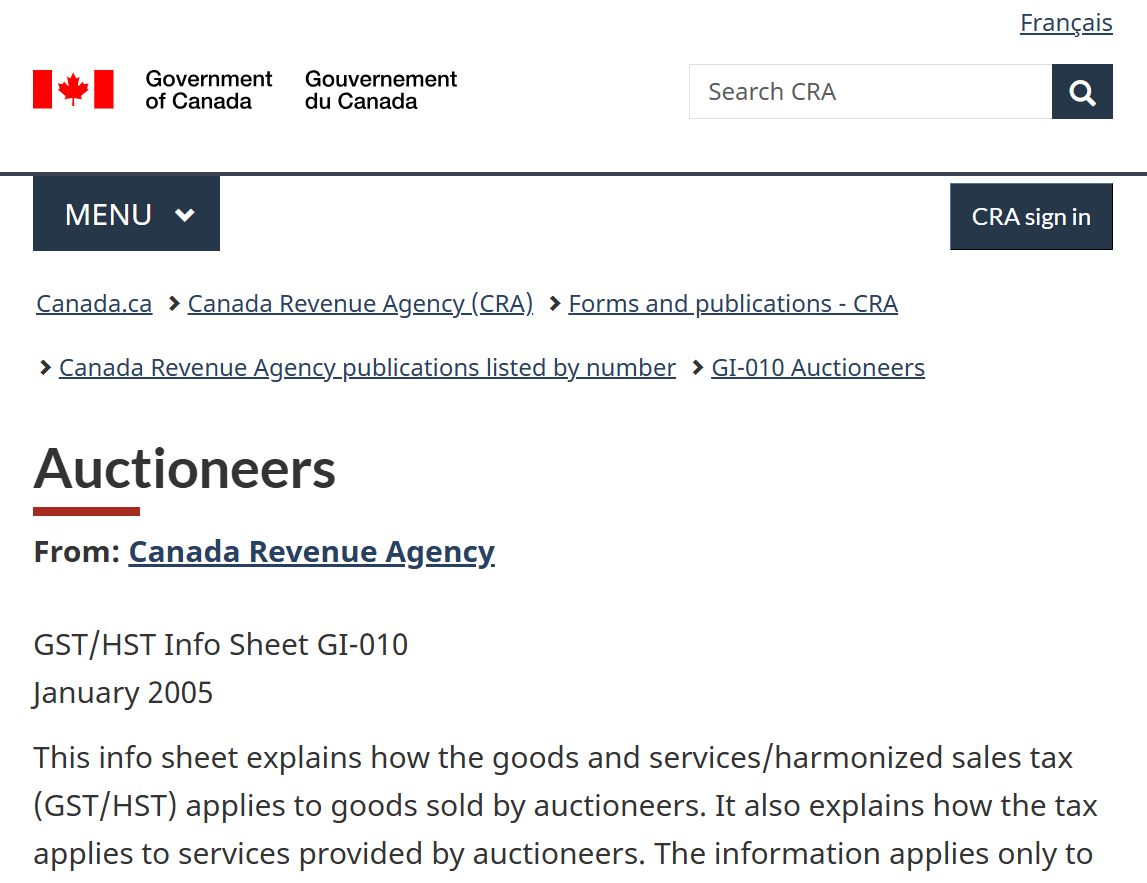
I see this question pop up a lot, especially from folks browsing government surplus auctions or estate liquidations.
“Do I have to pay HST when I buy something from an auction?”
The answer? Sometimes yes, sometimes no. It comes down to who’s selling and how they’re selling it.
The key issue is whether the seller is a GST/HST registrant, and if the sale is being done through a registered auctioneer.
The CRA has a whole publication on this. If you're curious, here's their official breakdown:
CRA Publication – Auctioneers and GST/HST Rules (GI-010)
If an auctioneer is facilitating the sale, whether it's in-person or online, they’re legally required to charge HST, even on items that might normally be exempt.
Let me give you a real-world example.
A client of mine, big into coin collecting, bought a few gold and silver coins at an auction house. Normally, precious metals like pure gold and silver coins are zero-rated for HST, meaning you don’t pay any tax.
But in this case, since the auctioneer was the one selling on behalf of the owner, and they're HST-registered, HST was charged on top of the hammer price.
He showed me the invoice in shock:
“Why did I pay 13% HST on bullion? This should be exempt.”
I had to break the news: even though the item itself is usually exempt, auctioneer rules override that. It’s a quirk in the GST/HST system. When an auctioneer facilitates the sale, the transaction is deemed to be made by the auctioneer, and tax applies even if the owner wouldn’t otherwise charge it.
Same goes for business liquidations or bank repos.
If a company goes under and auctions off tools, trucks, or commercial equipment, the assets are being sold by a GST/HST registrant. In that case, even without an auctioneer, tax applies.
Here’s where it flips: if you’re buying from a non-registrant, like an estate sale or personal belongings from a private citizen, and no auctioneer is involved, then there’s often no tax at all.
Example:
This thread explains it well:
r/PersonalFinanceCanada – Buying a car from an estate sale
Auctions for real estate are rare but growing, especially in Quebec.
Good Reddit discussion here:
r/Quebec – Buying a home at auction
Here’s what I tell clients before they get too excited and raise their paddle:
And the big one: Can I recover the HST as a business expense?
If you're registered for HST, you may be able to claim it back through input tax credits.
Auctions are not tax loopholes. The fact that something is “used” or “from an estate” doesn’t mean you skip the tax. If a registered auctioneer is involved, assume HST will be added, even if the item is usually exempt.
If you're buying for personal use, that could be a big surprise. If you're buying for your business, that HST might be recoverable, but only if you’re registered and it qualifies.
Don’t find out the hard way after you’ve already paid.
Need help sorting out your auction invoices or recovering HST through your business? I’ve walked clients through this more than a few times. Just reach out.
References:
Looking for CRA audit support or GST/HST consulting? I’m based in Ottawa but work with clients across Ontario and Quebec. Let me know how I can help.
--
Disclaimer
The information provided on this page is intended to provide general information. The information does not take into account your personal situation and is not intended to be used without a specific consultation. Lucas CPA Professional Corporation will not be held liable for any problems that arise from the usage of the information provided on this page.